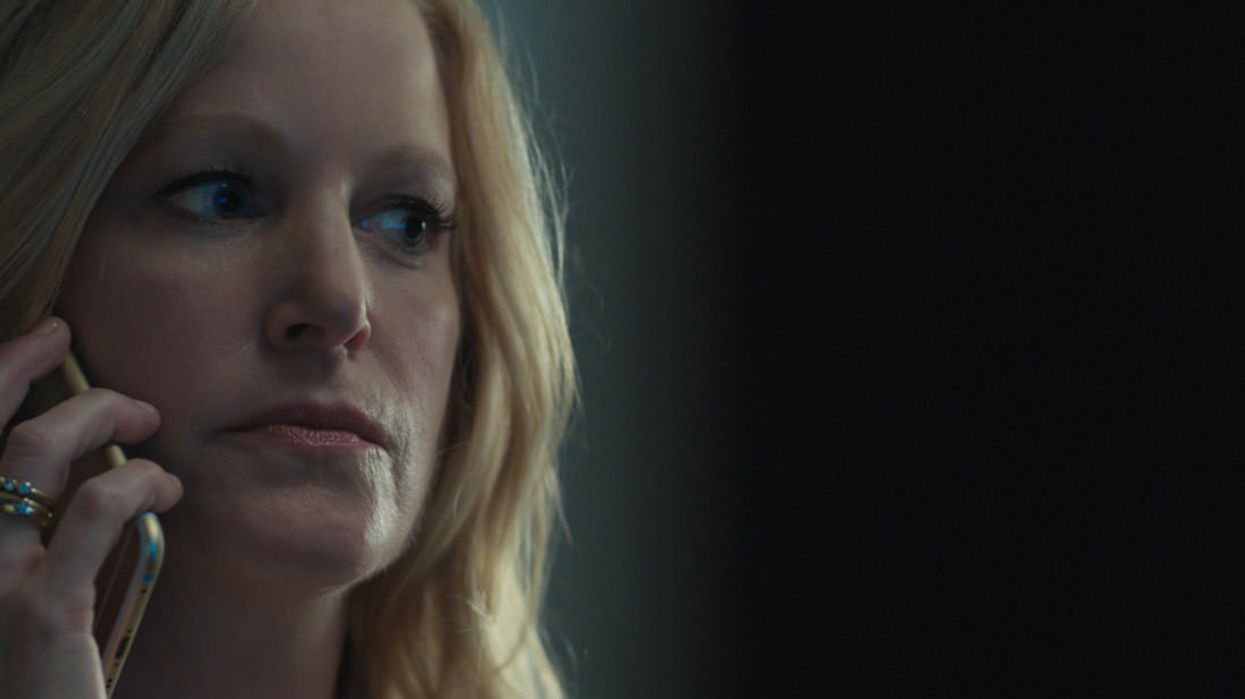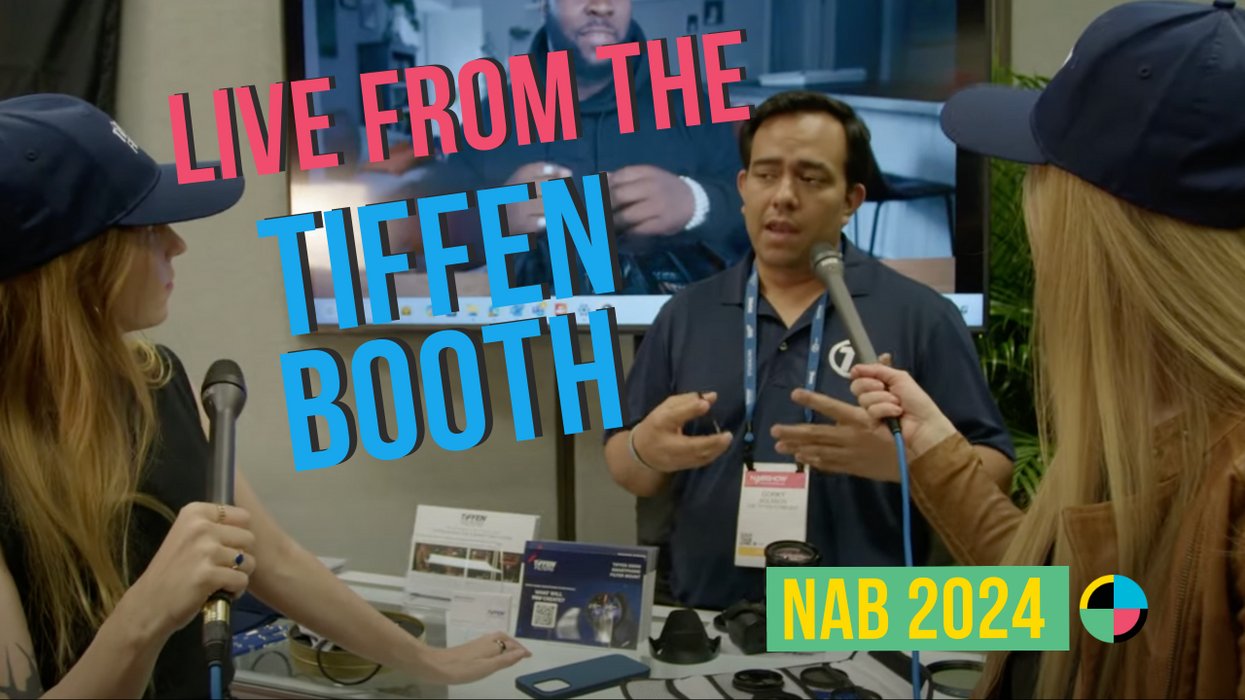Creating the Paranoid Wall Street World in Sundance Thriller 'EQUITY' with Screenwriter Amy Fox
"Character driven pieces are what I do," says screenwriter Amy Fox, known for her nuanced writing in Heights and Summer Cyclone.

In the Sundance Dramatic Competition film Equity, a paranoid thriller following a female investment banker (Anna Gunn) with a controversial IPO, Amy tackles both the financial world of Wall Street and the nuanced portrait of the people who work in it. No Film School sat down the Amy after the 2016 Sundance Festival Premiere to talk to her about writing the first female-driven Wall Street film, researching IPOs, and not letting a single one-line character go by unnoticed.
NFS: When Alysia Reiner and Sarah Megan Thomas, both producers and stars of the film, brought you on to write the screenplay for Equity, what appealed to you about writing this script?
Amy: I've been making this my career for a while now. It's taken me a lot of time as a woman to come into my power as a storyteller, and feel that I can seek out opportunities and be ambitious, and really own that. So I was fascinated by the women who I started researching and that I started meeting in doing this project. I was fascinated particularly by the women who started on Wall Street in the '80's. It was such a blatantly sexist, misogynistic environment and I wanted to know, who were these women who were the trailblazers? How did they build the strength to believe they deserved to be there, and to show up at work, and do an amazing job everyday? And do it through what was a very difficult time in the industry for them. That was really my inspiration at the beginning.
I was fascinated particularly by the women who started on Wall Street in the '80's. It was such a blatantly sexist, misogynistic environment and I wanted to know, who were these women who were the trailblazers?
NFS: You mentioned research; to what extent did research play a role in who the characters ended up being? It's a very specific world, and in the film even small characters have nuanced personalities. Tell us about your process of combining those two elements so crucial to this script.
Amy: Character driven pieces are what I do. My background originally was in the theater. In theater, you have to hire an actor to do a tiny, one-line role. You can't just bring on a day player, everyone is there for the entirety of the run. So you really have to make sure every role on stage is nuanced and has a full life to it. That's my background. What was new for me was the specifics of Wall Street, which I did not know much about. I never worked in finance. That was probably the biggest challenge for me, and I spent about a month researching before I even started writing any scenes. That included interviewing women and men on Wall Street, reading a lot, and also getting familiar with the most fundamental financial basis of that world. What is an IPO? All of that technical stuff which was brand new to me, and I really needed to study.
I spent about a month researching before I even started writing any scenes. That included interviewing women and men on Wall Street, reading a lot, and also getting familiar with the most fundamental financial basis of that world.
We had a reading of the first draft of the script and my folks had been so much on, "Can I get this Wall Street world right?" At the reading several people who worked on Wall Street came to that reading and they said, "The script is very authentic." Then everyone started saying, "But the characters need a lot of work," and I was so happy because I said, "Yeah, yeah, I know the characters need work but that’s my sweet spot. The next draft for me is all about the characters but the thing I was most scared of was getting Wall Street right. If I know I've done that, then I can go back to what I'm good at.
Character driven pieces are what I do. In theater, you have to hire an actor to do a tiny, one-line role...so you have to make sure every role on stage is nuanced and has a full life to it.
NFS: The Glass Ceiling on Wall Street that we see in the film could mirror in many ways to the glass ceiling in the film industry today. What do you think about the current state of the industry and what can we do to allow women to break through that glass?
Amy: The parallels are definitely there. Last year a study came out that looked at men and women directors and writers with first features. They compared what happened with their careers after that first feature. For men, a first feature at a big festival tended to launch their career as a director or writer, and it was not the case for the majority of women. I had a film at Sundance some years ago, a feature that I wrote that was also a Sony Pictures Classic film. Certainly I have gone on working and writing, but it didn't launch me the way I expected it would and I've been putting that on my self. When that study came out, for me it was very empowering. You have to realize that there's a system working against women, and that it may not be because of your own personal shortcomings or the shortcomings of your film. It’s important to understand that, and to work against that. That's something Naomi deals with in the film -- she's had previous things that have not worked out, maybe a deal that had not worked out quite as she wanted and she put that blame on herself as opposed to looking around her and saying, "Maybe there is something going on that's bigger than me that's keeping me in this place."
You have to realize that there's a system working against women, and that it may not be because of your own personal shortcomings or the shortcomings of your film.
Of course it's always a combination of both, but for me that's just a very important parallel. I get that it's changing. Sundance hosted a Women at Sundance brunch the other day that was incredibly inspiring with Effie Brown as the main speaker. At the brunch, Effie said a lot about, "We've had this conversation before, the question is are people going to take action or are people going to hire women, invest in women? The people who do that are the people that actually create change and not just a conversation." It was inspiring.
Thank you Amy!
Stay tuned for our interview with Equity director Meera Menon (Farah Goes Bang) for a look at the gender-reversed noir aesthetic of the film.
For more, see complete coverage of the 2016 Sundance Film Festival.
No Film School's video and editorial coverage of the 2016 Sundance Film Festival is sponsored by Blackmagic Design.














